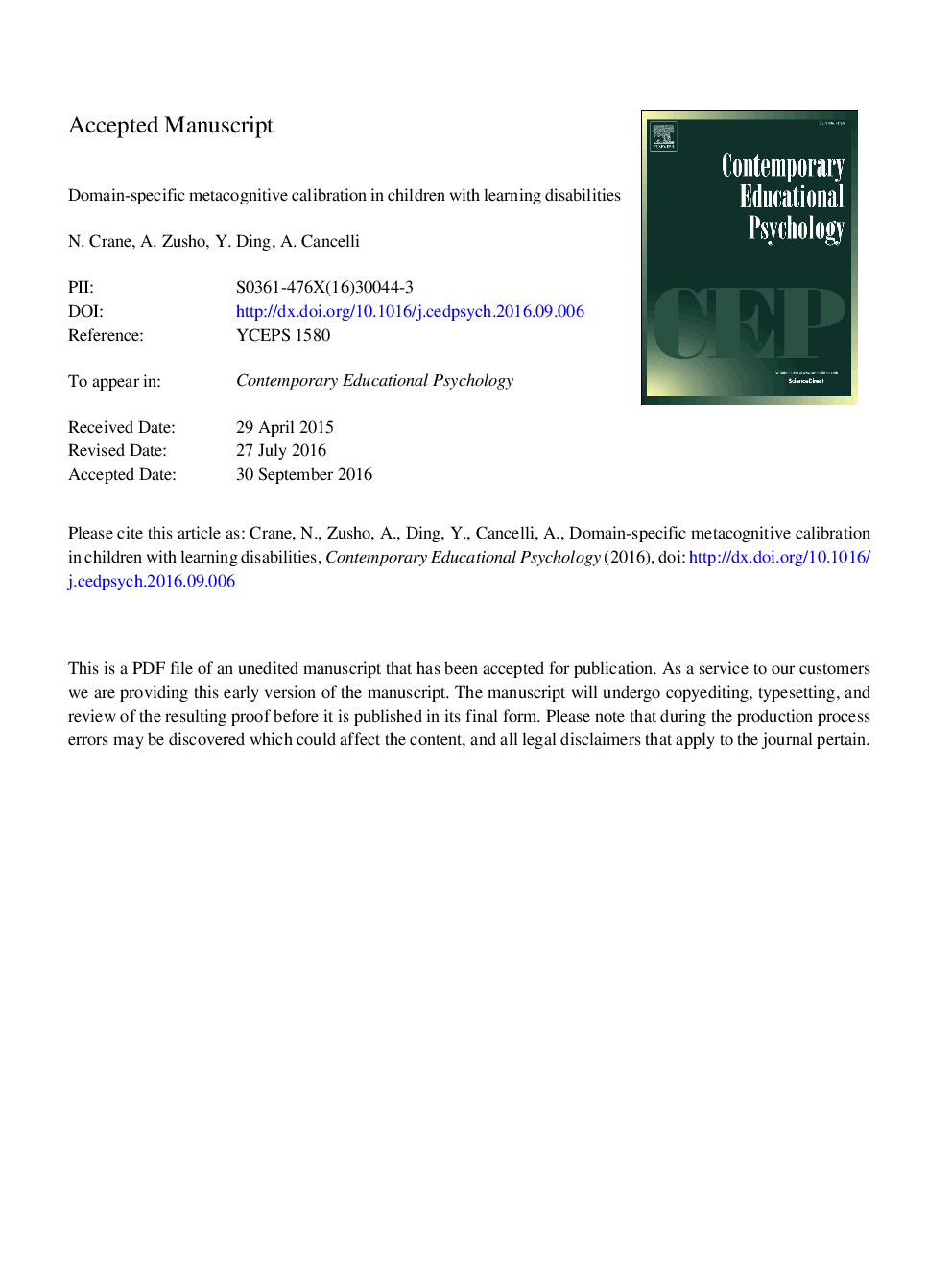ترجمه فارسی عنوان مقاله
کالیبراسیون فراشناختی خاص در دامنه در کودکان مبتلا به اختلالات یادگیری
عنوان انگلیسی
Domain-specific metacognitive calibration in children with learning disabilities
| کد مقاله | سال انتشار | تعداد صفحات مقاله انگلیسی |
|---|---|---|
| 120214 | 2017 | 38 صفحه PDF |
منبع

Publisher : Elsevier - Science Direct (الزویر - ساینس دایرکت)
Journal : Contemporary Educational Psychology, Volume 50, July 2017, Pages 72-79
ترجمه کلمات کلیدی
فراشناخت، کالیبراسیون، خود کارآمدی، ناتوانی های یادگیری،
کلمات کلیدی انگلیسی
Metacognition; Calibration; Self-efficacy; Learning disabilities;

